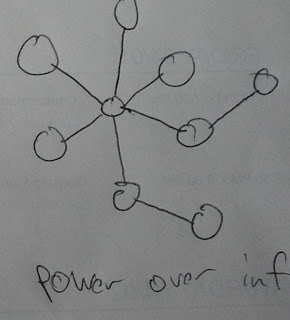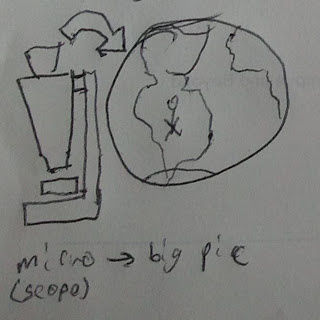I interviewed a bunch of my friends. Rather than focusing on 5 techies and 2 fuzzies as we had earlier agreed on, I found a lot of interdisciplinary people.
We brainstormed a lot of questions, but I generally just let the interview flow naturally. Our questions:
How do you get your kids excited about STEM?
What excites your kids about STEM?
How can we get kids involved with their hands?
How can we get kids involved in tangible engineering projects?
What's preventing kids from being motivated about STEM today?
How can we get parents involved in their kids' STEM education?
How can we use the environment to help kids' STEM education?
What are some ways to get kids involved that uses their idle time?
What are some ways to get parents involved that doesn't use up their time (too much)?
What types of products could help kids get excited about STEM?
Haw can we incorporate STEM / hands-on projects into everyday life?
What age do you think is appropriate for this kind of project?
What got you interested in STEM?
D1:
parent was CS. computers in the house.
"creepers" game -- like The Incredible Machine
good at math and interested in as early as he can remember
D2:


currently anthro major but interested in CS. thinking of section leading.
as a kid, was interested in stories, not math/sci
mom flunked out of algebra and never went back. didn't discover that her mom, working in the 80s, interfaced with the database people because she was the only one who wasn't afraid of the programmers.
always interested in how things worked. in building stuff. wanted to apprentice as a carpenter instead of going to college.
first liked science in biology class. got a big picture understanding of how things worked.
wanted to be a doctor. took a gap year in turkey to see doctors. discovered that you can help people without being a doctor.
went to Stanford, and got intrigued by silicon valley. Saw connections between social issues and computing. "MS is in seattle because of hydropower? writing more efficient code can save energy?"
was concerned about information flow. the internet is a big place. How do we organize it? Are we doing it so that people can reinforce their regular ideas? There are a few people making these decisions. I was researching hezzebolah for MUN, so I went to those websites. Probably most people in the US wouldn't.
took CS sophomore college. learned lots of cool stuff. learned about PageRank.
took CS106A, took 106B. applied to section lead. taking 107.
A:

Now earth science. got interested because he always wanted to be outdoors.
started at a young age. parents always took him hiking. went mountainbiking. went to summer camps.
wrote college app on a trip to some islands off of Maine
before stanford, no classes that played off of these interest. enviro sci classes in HS were bad.
K:
now CS.
Parents were physicists
star wars!!!
good at art. good at math. good at physics.
enjoyed solving problems
bio and chem were too much memorization
took a CS class in frosh year of HS and vowed never to take one again because the teacher was so bad.
did sle. interested in everything.
took a CS class in sophomore year at Stanford because it's stanford, and I thought that if Stanford CS was bad, I would really never be interested in it. Then, I liked it and continued on.
E:

now CS.
got excited about CS because you can download or write a program and build things and do things. The limit is how good of a programmer you are, nothing else (well, except for hardware).
got excited in 8th grade. Before then, was enamored with idea of hacking stuff, but whenever he looked up how to hack something, it would require some programming. In 8th grade, he took a semester long class on computers. There was taking apart and putting together computers, typing, and in the last two weeks, there was some basic programming (ie, fahrenheit to celsius in c++). The hardware stuff wasn't very exciting, but the programming opened the door.
In HS, did an independent study of Java.
in MS and HS, the programming teaching wasn't very good, but it was still exciting. Then, CS became big in college.
Didn't enjoy math. It seemed rote. "Can you solve this equation? Probably." Science was interesting. In retrospect, my middle school didn't have a good math program.
M:

now english. used to be physics.
Excited about books. realist, modernist, and shakespeare.
First got excited when she was 6. her mom dropped her off at a university where Romeo and Juliet rehearsals were going on, so she saw romeo and juliet a bunch of times.
the actors who played romeo and juliet weren't very good, but the casting was gender blind, and there was a female Tibbalt and male Nurse that wer eawesome. Tibbalt was my role model. She kicked ass and everyone was afraid of her.
I stayed interested in books consistently.
I had a good english teacher and a good physics teacher. I also took an independent study in science to learn about astronomy (in high school), and I loved it.
at Stanford, I was a physics major for two years. I liked physics, and I thought that it was more useful / employable and that i would be able to read books on the side, whereas you have to study physics to do physics. The intro classes were bad, and I thought that they would get better. They didn't.
Over the summer before Junior year, I did physics research by coding stuff, but it didn't feel useful. That turned me off of physics.
No comments:
Post a Comment